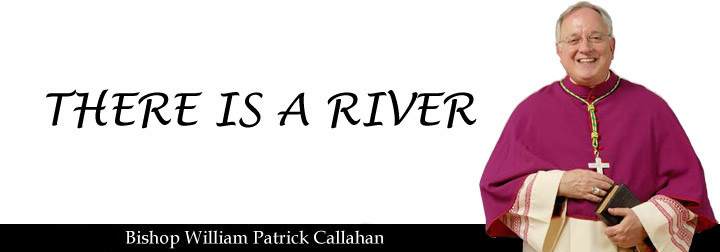Yesterday, Thursday 19 September 2013, my daily schedule was filled with more than normal abnormal things. Almost everything, of course, was completely a surprise. One of the biggest surprises of all was the release of the Pope’s interview with Father Antonio Sparado, a Jesuit priest who is the editor of La Civilta Cattolica, an Italian Jesuit journal. The interview took place in August during three meetings between the two men. After the official Italian text was approved, five translators were commissioned to produce an English translation. I hasten to point out—Pope Francis does not speak English very well so the nuances and innuendos were part of the translator’s shading of the Pope’s thoughts and words.
The interview has created quite a storm in the mainstream media. Their spin and subsequent reporting once again leads one to think that the Pope is really making a statement about issues as opposed to attitudes. The same old media canards of abortion, contraception, homosexual unions, and women’s ordination have all been juxtaposed—quite non-contextually—against some basically beautiful and essentially significant parts of the Papal message.
In plain and simple language, the Pope is tired (aren’t we all??) of hearing the Catholic message ridiculously and trivially boiled down to secular ideologies concerning social behavior that is at variance with Catholic teachings on ethics, morality, or social issues. He reaffirmed in this interview that the church’s teaching in those areas remains clear and unchanging. Then what’s all the hubbub in the secular press?
Pope Francis, in that same mainstream media, has been acclaimed as the “World’s Parish Priest.” That title, while it is meant to show how “different” Francis is, is precisely his badge of honor and character in the world where he is the Universal Pastor of souls. He begins the interview by identifying himself as a “sinner.” So far, he’s no different from any of us. And he continues to note that “I am a sinner whom the Lord has looked upon.” That is the basic message of the Gospel; we are sinners and the Lord has looked upon us. That is the message of the Gospel and it is for the proclamation of that Gospel that the Church exists. Jesus Christ, the Son of God saves sinners and loves us.
The Pope made it clear, furthermore, that he is not accustomed to talking to so many people at once (a reference to the crowds at World Youth Day.) “I can look at individual persons, one at a time,” he said, “to come into contact in a personal way with the person I have before me.” This is the essence of this interview. It becomes a moment with “the world’s parish priest” and, I think, more than being an interview “for the masses” it is a personal blueprint of ministry for priests and bishops in a very beautiful way. So much so, that it has shaken the world with its Gospel simplicity. This Pope did not choose the name and patronage of Saint Francis of Assisi on a whim—he knows the Saint and he knows how Saint Francis’ Gospel simplicity melted the hardened hearts of the secular society of his age.
The Pope is not opening a new arena of public dispute about secularism and the adversarial roles between the Church and the world; nor is he trying to remake the Church into a consort for the Worldly. This interview, I think, was primarily a message to everyone, but especially to priests and bishops, that the Church is truly a “one issue” Church and that the issue is the personal relationship that God has with each and every human person in Jesus Christ. The parish priest, in particular, is a messenger and deliverer of the Good News of Jesus Christ and wins souls for Christ one soul at a time.
The Pope called bishops and priests in particular to be good shepherds who, with Jesus, would walk with each member of the flock through the darkness. We must first see the person who is loved by God and saved by His love through the Blood of His Son. Each person must be received with that sense of Gospel charity—the proclamation of the message of Jesus Christ. Such charity opens new doors to speak about “issues” and to instruct through catechism and the sacraments of the Church.
This article is an insight into the teaching style of the Pope; different, perhaps, from what we are used to or even that with which we are comfortable. There is no doubt, however, that he maintains the authoritative and true teachings of the Catholic Church. What I think he wants us to understand, moreover, is that the Church has a heart—and that heart is the Heart of Christ Himself.
Share the love at Sunday Mass—bring a friend.
